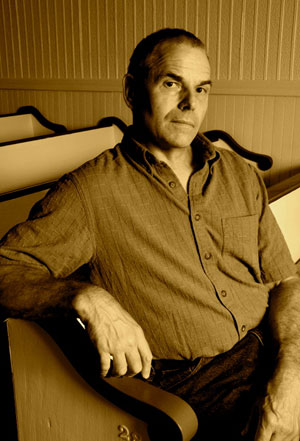My prison pen pal “Conway”, who is serving 25-to-life for receiving stolen goods under California’s three-strikes law, has been reading Dag Hammarskjold’s Markings. He sent me these quotes to help me as I struggle to sort out true faith from legalistic obedience:
“A task becomes a duty from the moment you suspect it to be an essential part of that integrity which alone entitles a person to assume responsibility. While performing the part which is truly ours, how exhausting it is to be obliged to play a role which is not ours. The person you must be, or appear to others not to be, in order to be allowed by them to fulfill it. How exhausting but unavoidable, since mankind has laid down once and for all the organized rules for social behavior….
“How am I to find the strength to live as a free man, detached from all that was unjust in my past and all that is petty in my present, and so, daily, to forgive myself? Life will judge me by the measure of the love I myself am capable of, and with patience according to the measure of my honesty in attempting to meet its demands, and with an equity before which the feeble explanations and excuses of self-importance carry no weight whatsoever.”
Conway
also enclosed the poem below, “Comfort-ward”. It was written on the back of a document titled “Department of Corrections and Rehabilitation INFORMATIONAL BULLETIN”. Conway re-titled it “Fractured Form o’ Bull” and extracted a found-poem from it by underlining selected words and fragments of words. For instance, part of the original text (with Conway’s emphasis added) read:
…An inmate who is deemed a program failure by a classification committee is subject to having his/her personal property/appliances disposed of in accordance with Departmental procedure.
3315(f)(5)(P) Violation of subsection 3323(f)(6) shall result in:
1. Loss of visits for 90 days, to be followed by non-contact visits for 90 days for the first offense.
2. Loss of visits for 90 days, to be followed by non-contact visits for 180 days for the second offense.
3. Loss of visits for 180 days, to be followed by non-contact visits permanently for the third offense.No text was deleted or changed, only misplaced by the publisher…
Thus, this section of the found-poem would read something like this:
…who is deemed a failure
subject his/her person
disposed in a dance with mental Violation
Loss followed first Loss
followed by offense
followed by non-contact
permanently misplaced…
I sent Conway some writing prompts and resources about Oulipo. Experiments with found texts may seem like a parlor game for academics, but when texts are generated by the oppressor and used to shore up a dehumanizing system, these literary methods reveal their politically subversive potential. I look forward to seeing what he does with these exercises. Meanwhile, enjoy his latest poem:
Comfort-ward
Timelines encircle this prisoner’s eyes
mirroring shelves of eroded bone
while arrest was left unexpressed.
This stone tongues talk has become useless.
I would shave my head, if that
could convey, all the words left unsaid.
This struggle has deposited scars
but awakened me cleared by stars-n-gripes
though my world may appear to be fallen stripes;
These verse’ feel somehow protective…
